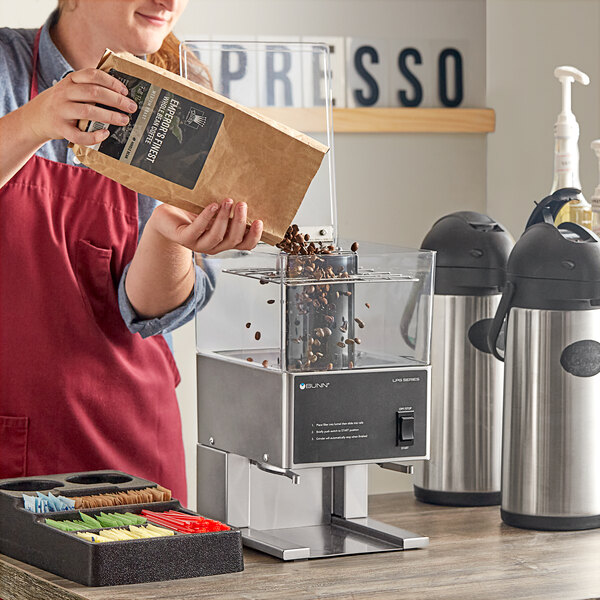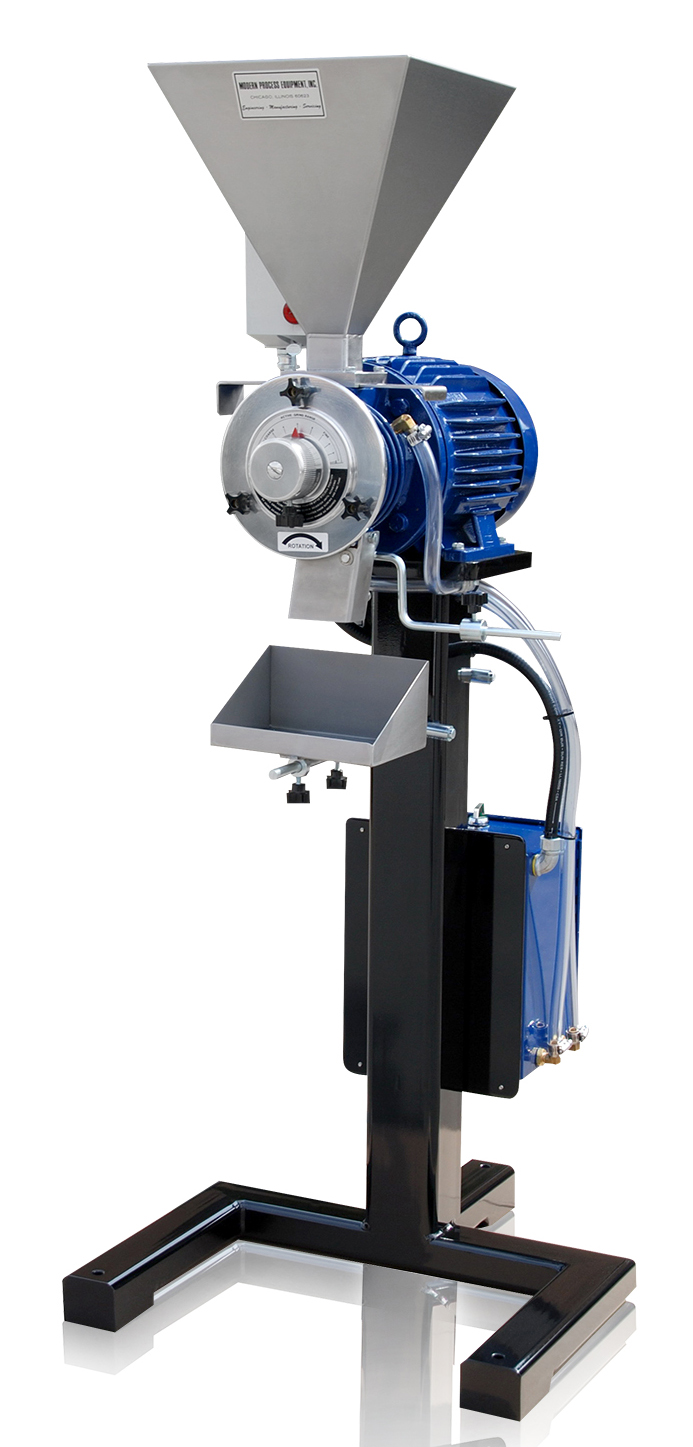Industrial Coffee Grinder Overview: Boost Performance and High Quality
In the affordable landscape of coffee production, picking the appropriate commercial coffee mill plays a pivotal duty in enhancing both performance and product quality. Understanding the subtleties of different grinder kinds and crucial attributes-- such as personalized work settings and durable building-- can significantly affect the final flavor profile of the coffee.
Comprehending Mill Types
When selecting an industrial coffee grinder, understanding the numerous types available is vital for optimizing both taste extraction and functional effectiveness. Both key sorts of mills are blade grinders and burr mills. Blade mills use sharp blades that slice coffee beans into inconsistent sizes, causing unequal extraction and possibly undesirable tastes. While blade mills are usually extra cost effective and ideal for small operations, they are generally not suggested for industrial use.

Inevitably, choosing the right sort of mill is integral to keeping high quality and effectiveness in coffee manufacturing, making it important for organizations to spend in top notch burr grinders for optimal results.
Trick Attributes to Think About
Selecting an industrial coffee grinder calls for cautious factor to consider of a number of vital functions that can significantly affect both efficiency and the overall coffee experience. One of the primary facets to review is the grinding system. Burr grinders are normally chosen over blade mills, as they offer a regular work dimension, which is important for optimum extraction and taste.
Another essential function is the mill's capability. A flexible grinder with several setups enables you to customize the work dimension to various brewing approaches, boosting the coffee's taste account.
Examine the grinder's noise degree, especially in a busy coffee shop or production setting, where excessive sound can be disruptive. Spending in a mill that stabilizes these features can substantially improve both operational performance and the high quality of the coffee offered.
Optimizing Grinding Process
To achieve the ideal outcomes in coffee preparation, enhancing the grinding process is crucial. The grind size considerably affects removal, flavor, and general quality of the brewed coffee.


Additionally, keeping track of the grinding rate can optimize the process. Slower grinding often generates much less warm, preserving fragile flavors and fragrances. On the other hand, faster grinding may produce excessive warm, adversely affecting the coffee's high quality.
Maintenance and Treatment Tips
Correct upkeep and treatment of commercial coffee grinders are important for ensuring optimal performance and longevity. Routine see here cleaning is the structure of upkeep; residue build-up can influence taste and grinding effectiveness. It is suggested to cleanse the mill after each use, wiping down the outside and removing any coffee grounds from the burrs.
Furthermore, examine the grinding burrs for deterioration. Dull burrs can jeopardize work consistency, so they should be changed as needed. Industrial Coffee Grinder. Periodically adjusting the grinder is likewise essential, as this maintains the desired work dimension for different brewing methods
Lubrication of moving parts need to be done according to the maker's specs, as the original source this lowers rubbing and extends the life of the equipment. It is necessary to make use of food-grade lubricants to make sure safety and security and conformity with health policies.
Finally, maintain the mill in a dry and steady atmosphere to avoid corrosion and rust. By sticking to these maintenance and treatment tips, operators can boost the performance of their industrial coffee grinders while ensuring high-quality output and extended operational life.
Roi Evaluation
Evaluating the roi (ROI) for industrial coffee grinders is crucial for companies looking for to maximize their coffee manufacturing capabilities. A thorough ROI evaluation helps figure out the monetary practicality of buying premium grinders, allowing organizations to evaluate the first expenses against possible gains.
Assess the purchase cost of the grinder, consisting of setup and any kind of required adjustments to existing facilities. High-performance mills usually lead to minimized grinding time and enhanced throughput, which can significantly enhance performance.
In addition, think about the effect on product quality. Industrial Coffee Grinder. Superior grinders generate a more consistent grind dimension, which can improve flavor accounts and client complete satisfaction, inevitably driving sales. By boosting the high quality of the final product, companies can justify higher prices, bring about boosted income
Final Thought
In recap, an industrial coffee grinder plays a pivotal duty in enhancing both performance and item high quality within coffee manufacturing. Ultimately, the critical financial investment in a trustworthy grinder contributes significantly to enhanced revenue and competition in the coffee market.
In the affordable landscape of coffee manufacturing, selecting the ideal commercial coffee grinder plays an essential function in enhancing both performance and item high find out here quality. The 2 key types of mills are blade grinders and burr mills. Within the burr grinder classification, there are flat burr grinders and conelike burr mills, each with its benefits. Burr grinders are generally preferred over blade mills, as they give a consistent grind dimension, which is vital for optimal removal and flavor.
In recap, a commercial coffee mill plays a pivotal duty in boosting both performance and item top quality within coffee manufacturing.